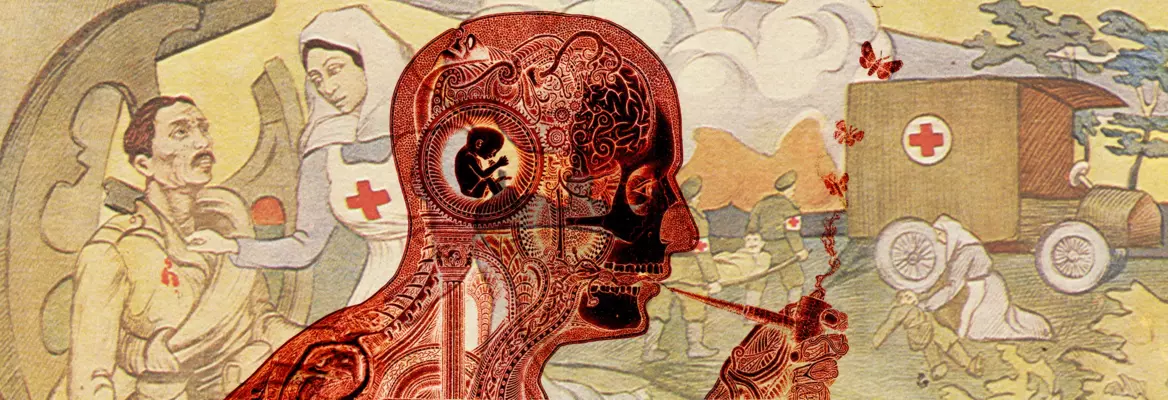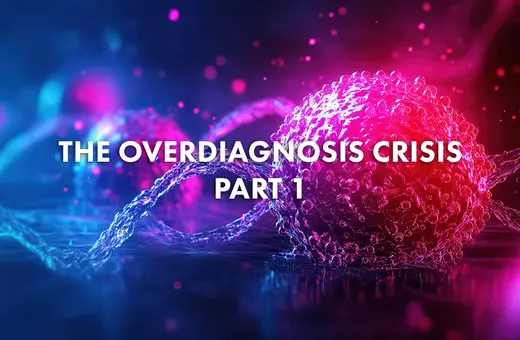Descartes’ mind-body dualism might sound antiquated, but it is still surprisingly prevalent within medicine. But, neuroscientist Camilla Nord argues, treating mental and physical health as separate domains is a mistake. Recent medical evidence shows that poor mental health and poor physical health often share a common underlying cause, highlighting the need for a fundamental shift in how we understand the connection between mental and physical health.
We all know that our bodily states can sometimes alter our mental experiences. Think to the last time you felt irritable, but later realised you were just hungry—or felt depressed the morning after a sleepless night. But for the most part, medicine still treats mental and physical health as though they were completely independent of one another. This mind-body dualism is not only misguided, but can be dangerous when informing the treatments doctors provide (or fail to provide) for mental and physical ailments alike.
Mental illness tragically shortens life expectancy by about 15 years for women and 20 years for men: this is called the ‘mortality gap’. Most of this mental health mortality gap is not driven by what one might think, thinks like self-harm, addictive substance use, or suicide. It is actually accounted for by physical health, particularly cardiometabolic health such as high blood pressure and Type 2 diabetes. Mental and physical health are closely intertwined by common risk factors and intersecting biological processes supporting mental and physical health. Increasingly, neuroscientific studies find physical origins, correlates, and consequences of mental health problems—and on the other hand, have discovered key psychological contributors to physical health. In reality, many conditions cannot be neatly categorised as affecting either ‘mental’ or ‘physical’ health.
___
Studies suggest some aspects of poor mental and physical health share a common cause—and potentially, common treatments.
___
We need a radical shift in our conceptualisation and treatment of mental and physical health conditions. This shift could be key to closing the mortality gap, whether by using psychological therapies for some physical health problems or by discovering potential mental health benefits of physical health treatments.
Mental and physical health are related in many ways. Most obviously, poor physical health can lead to poor mental health: discomfort or pain from a physical health problem might understandably worsen mental health. But poor mental health can also cause poor physical health, including indirectly, by changing someone’s environment or the way they interact with the environment. Maybe most interestingly of all, studies suggest some aspects of poor mental and physical health share a common cause—and potentially, common treatments.
 SUGGESTED READING
Technology and the demise of medicine
By David Healy
SUGGESTED READING
Technology and the demise of medicine
By David Healy
Let’s start with whether poor mental health can cause poor physical health. Recent large-scale epidemiological studies suggest the answer is yes: by following over 700 twins for twenty-seven years, scientists found that experiencing symptoms of depression by midlife increased risk of later diabetes and high cholesterol. The scientists were careful to statistically control for variables that might otherwise drive the relationship, including alcohol consumption, smoking, and body mass index (BMI). Studies like this show that having a history of depression increases your risk of cardiometabolic problems. But this type of research struggles to answer perhaps the most interesting question—how? What is it about depression that might increase risk of later health problems? Might changes to the brain (or body) involved in mental health cause physical health differences, or vice versa?





















Join the conversation